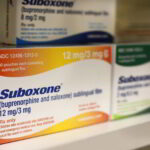Malaria is a serious and potentially life-threatening disease that is spread by infected mosquitoes. Recently, the Centers for Disease Control and Prevention (CDC) issued an alert regarding five cases of locally acquired malaria reported in Texas and Florida. This is the first time that malaria has been reported in these states in over 70 years. This article will provide an overview of the CDC’s alert and the potential risks associated with malaria. It will also discuss the steps that can be taken to reduce the risk of contracting the disease. By understanding the risks and taking the necessary precautions, individuals can help protect themselves and their families from the dangers of malaria.
CDC Issues Alert for Locally Acquired Malaria in Texas and Florida
The Centers for Disease Control and Prevention (CDC) has issued an alert for locally acquired malaria in Texas and Florida. This is the first time in over 70 years that locally acquired malaria has been reported in the United States.
Malaria is a serious and potentially life-threatening disease caused by a parasite. It is spread through the bite of an infected mosquito. Symptoms of malaria can include fever, chills, headache, muscle aches, and fatigue. If left untreated, malaria can cause severe complications and even death.
The CDC is urging residents of Texas and Florida to take steps to protect themselves from mosquito bites. This includes using insect repellent, wearing long-sleeved shirts and long pants, and avoiding outdoor activities during peak mosquito biting hours. Residents should also make sure to keep their windows and doors closed and use air conditioning when possible.
The CDC is also recommending that people living in or visiting Texas and Florida be tested for malaria if they have symptoms of the disease. Treatment for malaria is available and should be started as soon as possible.
The CDC is working with state and local health departments to investigate the cases of locally acquired malaria in Texas and Florida. The agency is also monitoring the situation closely and will provide updates as more information becomes available.
It is important to remember that malaria is preventable. By taking steps to protect yourself from mosquito bites, you can help reduce your risk of becoming infected with malaria.
Risk Factors for Contracting Locally Acquired Malaria in Texas and Florida
Malaria is a mosquito-borne disease caused by a parasite that is transmitted to humans through the bite of an infected mosquito. In the United States, malaria is most commonly found in the southern states of Texas and Florida. Locally acquired malaria is a serious health concern in these states, and there are several risk factors that can increase a person’s chances of contracting the disease.
The most important risk factor for contracting locally acquired malaria in Texas and Florida is living in or visiting an area where the disease is endemic. Malaria is most commonly found in rural areas, especially in areas near bodies of water such as rivers, streams, and lakes. People who live in or travel to these areas are at an increased risk of contracting the disease. Additionally, people who live in or visit areas with high levels of poverty and poor access to healthcare are also at an increased risk of contracting malaria.
Another risk factor for contracting locally acquired malaria in Texas and Florida is engaging in activities that increase exposure to mosquitoes. These activities include camping, fishing, and hunting. People who participate in these activities should take extra precautions to protect themselves from mosquito bites, such as wearing long-sleeved shirts and pants, using insect repellent, and avoiding outdoor activities during peak mosquito hours (dusk and dawn).
Finally, people who have weakened immune systems due to certain medical conditions or medications are at an increased risk of contracting malaria. People with HIV/AIDS, cancer, and other chronic illnesses are particularly vulnerable to the disease. Additionally, people who are taking immunosuppressant medications, such as those used to treat autoimmune diseases, are also at an increased risk of contracting malaria.
It is important to be aware of the risk factors for contracting locally acquired malaria in Texas and Florida in order to protect yourself and your family from the disease. Taking steps to avoid mosquito bites, such as wearing protective clothing and using insect repellent, is the best way to prevent the spread of malaria. Additionally, people who are at an increased risk of contracting the disease should take extra precautions, such as avoiding activities that increase exposure to mosquitoes and seeking medical attention if they experience any symptoms of malaria.
Prevention Strategies for Avoiding Locally Acquired Malaria in Texas and Florida
Preventing locally acquired malaria in Texas and Florida is a critical public health issue. Malaria is a serious and potentially life-threatening disease caused by a parasite that is transmitted to humans through the bite of an infected mosquito. While malaria is not native to the United States, it is still possible for people to become infected with malaria in Texas and Florida.
The best way to prevent locally acquired malaria in Texas and Florida is to reduce the risk of being bitten by an infected mosquito. The most effective way to do this is to use insect repellents, wear long-sleeved shirts and long pants, and avoid being outdoors during peak mosquito hours (dusk to dawn). Additionally, people should take steps to reduce mosquito breeding sites by removing standing water from around their homes and yards.
It is also important to be aware of the symptoms of malaria and seek medical attention if they occur. Symptoms of malaria include fever, chills, and flu-like symptoms. If left untreated, malaria can cause severe complications and even death.
Finally, it is important to get tested for malaria if you have traveled to an area where malaria is present. This is especially important if you have been in an area where malaria is endemic or if you have been in contact with someone who has been infected with malaria.
By taking these simple steps, people can help reduce the risk of locally acquired malaria in Texas and Florida. It is important to remember that prevention is the best way to protect yourself and your family from malaria.
Treatment Options for Locally Acquired Malaria in Texas and Florida
Locally acquired malaria is a serious health concern in Texas and Florida, as the warm climate and abundance of standing water provide ideal conditions for the spread of the disease. The most effective way to prevent the spread of malaria is to use insect repellent, wear long-sleeved clothing, and sleep under a mosquito net. However, if someone does become infected, there are several treatment options available.
In Texas and Florida, the most common treatment for locally acquired malaria is the use of antimalarial drugs. These drugs are usually taken in combination with other medications, such as antibiotics, to reduce the risk of complications. The most commonly prescribed antimalarial drugs are chloroquine, hydroxychloroquine, and mefloquine. These drugs are usually taken for four to seven days, depending on the severity of the infection.
In addition to antimalarial drugs, there are other treatments available for locally acquired malaria. These include artemisinin-based combination therapies (ACTs), which are a combination of two or more drugs that are used to treat malaria. ACTs are usually taken for three to seven days, depending on the severity of the infection.
In some cases, locally acquired malaria may require hospitalization. During hospitalization, patients may receive intravenous fluids, oxygen, and medications to reduce fever and other symptoms. In severe cases, blood transfusions may be necessary.
It is important to note that locally acquired malaria can be fatal if not treated promptly and correctly. Therefore, it is important to seek medical attention as soon as possible if you suspect you may have been infected. Early diagnosis and treatment can help reduce the risk of serious complications and even death.
Impact of Locally Acquired Malaria on Public Health in Texas and Florida
Locally acquired malaria is a major public health concern in the states of Texas and Florida. Malaria is a mosquito-borne disease caused by a parasite, Plasmodium, which is transmitted to humans through the bite of an infected mosquito. In the United States, malaria is primarily found in the southern states, including Texas and Florida.
The impact of locally acquired malaria on public health in Texas and Florida is significant. In Texas, the number of locally acquired malaria cases has increased significantly in recent years, with the highest number of cases occurring in the counties of Cameron, Hidalgo, and Starr. In Florida, the number of locally acquired malaria cases has also increased, with the highest number of cases occurring in the counties of Miami-Dade, Broward, and Palm Beach.
The presence of locally acquired malaria in Texas and Florida can have serious health consequences. People who become infected with malaria can experience a wide range of symptoms, including fever, chills, headache, nausea, vomiting, and body aches. In severe cases, malaria can lead to anemia, kidney failure, seizures, coma, and even death.
The impact of locally acquired malaria on public health in Texas and Florida is further compounded by the fact that the disease can spread quickly. The mosquitoes that transmit malaria can travel long distances, and the disease can be spread from person to person through contact with an infected person’s blood or body fluids. This means that people who are not directly exposed to an infected mosquito can still become infected with malaria.
The impact of locally acquired malaria on public health in Texas and Florida can be minimized through prevention and control measures. These measures include using insect repellents, wearing long-sleeved clothing, using window and door screens, and avoiding outdoor activities at dawn and dusk when mosquitoes are most active. Additionally, public health officials in both states are working to control the spread of malaria by using insecticides to kill mosquitoes and by providing education about the disease.
Overall, the impact of locally acquired malaria on public health in Texas and Florida is significant. The disease can cause serious health complications and can spread quickly, making it important for people in both states to take steps to protect themselves from infection. By following prevention and control measures, people in both states can help reduce the risk of becoming infected with malaria.
In conclusion, the Centers for Disease Control and Prevention (CDC) has issued an alert regarding five cases of locally acquired malaria reported in Texas and Florida. The CDC recommends that people living in or traveling to these areas take steps to protect themselves from mosquito bites and to seek medical attention if they develop any symptoms of malaria. It is important to note that malaria is a preventable and treatable disease, and early diagnosis and treatment are essential for a successful outcome.











